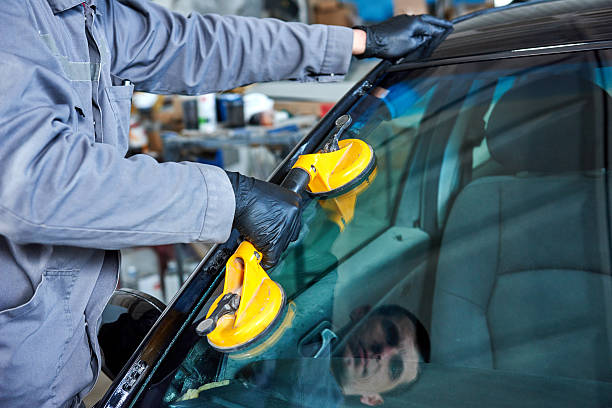Auto Repair: Helpful Tips You Can Use
Dealing with car repairs is one of the more challenging aspects of daily life. Read the article below to find out what can be done to help yourself. What you find out may be surprising.
Check the tread on your tires regularly to make sure they are safe. Tires that have less than one quarter of an inch of tread probably need to be replaced. Also be aware of any bulges or cuts on the surface of your tires as this may indicate a weak area that could blow out and cause an accident while you are driving.
When performing your own car repairs, make sure you budget enough time to get the job done. It's easy to underestimate how long a repair job will take. You may encounter difficult to remove bolts or nuts, or find out a part is harder to remove than you anticipated. Giving yourself enough time to complete the repair safely will make the job much less stressful.
Make sure you get a signed copy of the estimate for the repairs. You also need to make sure that the contract contains a clause that the shop must contact you before exceeding the total on the estimate. This will protect you from getting a surprise bill once work is completed.
If you take your car to a mechanic, make sure they have the proper licenses and credentials. Before making your appointment, check their reviews online and their standing with the Better Business Bureau. Don't just look at the positive reviews, but see how the company responds to negative feedback. Every business has the occasional problem, and if they handle the matter quickly and courteously, they may be worth a second look.
Do your research prior to choosing any auto repair company. Don't trust solely the company's website. Look to auto forums and be wary of any complaints you may see. Also take into consideration any rave reviews the auto shop receives. These are typically objective reviews, so you can trust them more than what the shop's materials may say.
Know the basics. If you have to take your car into the shop, be prepared to let them know what the make and model of your car is. Also, the actual trim level is important as it will give the technician more information about the engine, transmission and anything else that may be important.
If you have never done any auto repair on your own, you should stick with small jobs and do lots of homework to learn how to do larger jobs. Be certain not to start taking your car apart if you aren't sure how to put it back together. Before starting any car repair job, be sure you have all the necessary parts and tools in place and that you know exactly what you need to do to complete the job from start to finish.
Be sure your mechanic has proper certification. Particularly, make sure they are approved by the NIAE and other licensing boards. Viewing such credentials should leave you feeling fairly confident about the service you will receive.
Have you heard of the term OEM? Well, OEM is a term used to describe car components that come from the original manufacturer. Know this if you're taking a vehicle in to get repairs done to it. When you tell your mechanic that OEM parts are what you want, you sound like you have some knowledge. It is not as likely that a technician will attempt to put used parts upon your automobile.
Take your owner's manual with you when you go to the auto repair shop to get work done. If someone tells you that you need to get a service after a certain amount of miles, check and see if that matches what is in the manual. If it does not, let them know that you decline that particular service.
Don't ignore a "Check Engine" light. Many people think it's ok since they continue to run their car with no obvious issues. But a check engine light would have never appeared unless some internal check failed. It's best to get it looked into immediately, or you run the risk of a larger problem down the road.
If you are looking to extend your car's life, do not accelerate too quickly immediately after starting it up. Especially in cold weather, racing the engine of your car will result in it deteriorating more quickly and contributing to accelerated wear and tear. Rather, accelerate slowly when you begin to drive.
Use these tips the next time you're in need of auto repair. Don't stress out about the situation. Simply use what you have learned. Take charge of repairing your car, with a little advance knowledge and forethought you can get the best deal for the situation.

